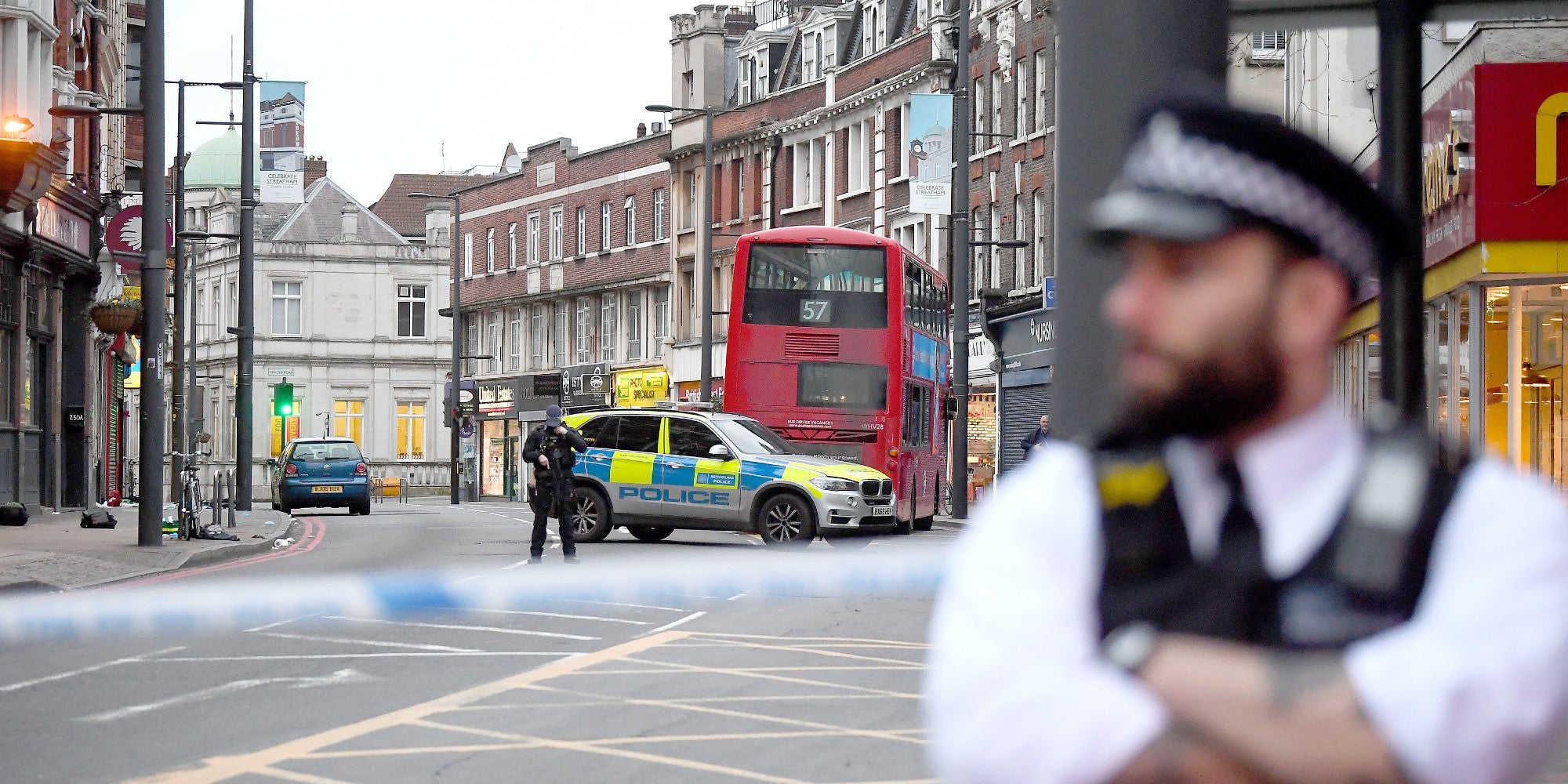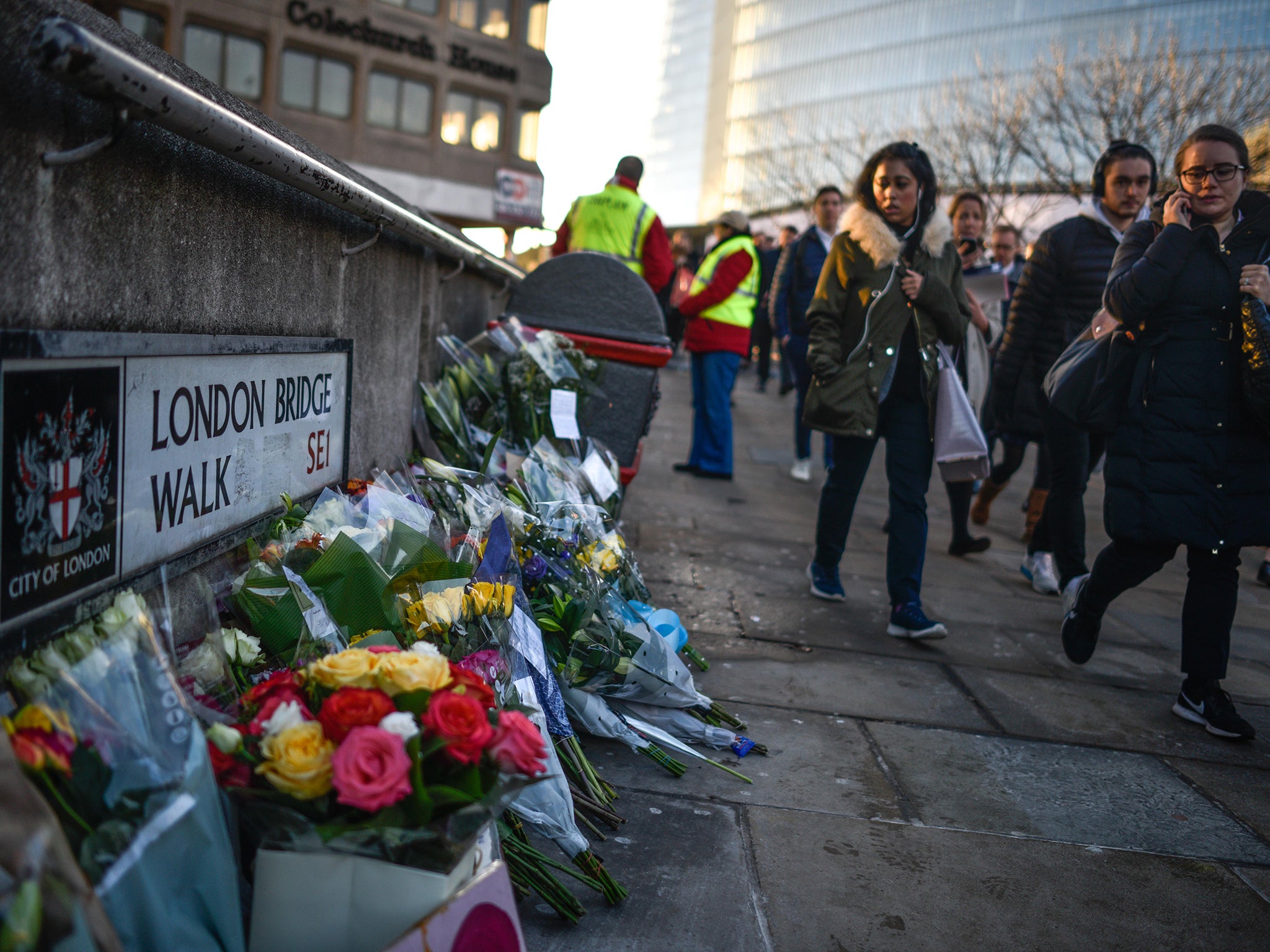‘No evidence’ that longer prison sentences will deter terrorists, watchdog warns
Government says package of laws including 14-year minimum term for plotters will ‘keep public safe’

Your support helps us to tell the story
From reproductive rights to climate change to Big Tech, The Independent is on the ground when the story is developing. Whether it's investigating the financials of Elon Musk's pro-Trump PAC or producing our latest documentary, 'The A Word', which shines a light on the American women fighting for reproductive rights, we know how important it is to parse out the facts from the messaging.
At such a critical moment in US history, we need reporters on the ground. Your donation allows us to keep sending journalists to speak to both sides of the story.
The Independent is trusted by Americans across the entire political spectrum. And unlike many other quality news outlets, we choose not to lock Americans out of our reporting and analysis with paywalls. We believe quality journalism should be available to everyone, paid for by those who can afford it.
Your support makes all the difference.There is “no evidence” that jailing terrorists for longer will deter them from planning terror attacks, a watchdog has warned.
Jonathan Hall QC, the Independent Reviewer of Terrorism Legislation, said it was unlikely that extremists plotting to kill multiple victims would be swayed by the prospect of a new 14-year minimum term.
The change is among measures in the Counter-Terrorism and Sentencing Act, which came into force in April.
Responding to a Sentencing Council consultation on how to implement the new law, Mr Hall objected to proposed guidelines stating that courts must “not undermine the intention of parliament and the deterrent purpose of the provisions”.
He wrote: “There is no evidence that the serious terrorism sentence provisions have a deterrent purpose and given the cohort of offenders in question - terrorist offenders who have risked multiple deaths - it is highly unlikely that they will be deterred by the prospect of a statutory minimum term of 14 years.
“It is much more likely that the provisions have an incapacitative purpose, by ensuring that offenders are held in prison for longer.”
The Sentencing Council’s proposed guidance, which remains under consultation, says judges can only justify not imposing the minimum term in “exceptional circumstances”.
It adds: “The circumstances must truly be exceptional. It is important that courts do not undermine the intention of parliament and the deterrent purpose of the provisions by too readily accepting exceptional circumstances.”
Mr Hall is currently undertaking a review of terror offences committed inside British prisons, amid concerns over networking and radicalisation behind bars.
A string of terror attacks and plots have been committed by released prisoners, and the government drew up the Counter-Terrorism and Sentencing Act after the February 2020 Streatham stabbing.
Last week, a coroner found that more people could be killed in terror attacks if the way authorities manage extremist prisoners is not changed.
Judge Mark Lucraft QC said the 2019 Fishmongers’ Hall attack, where a released terror offender murdered two people at a rehabilitation event, raised “matters of concern” about procedures in jails, probation services and policing.

“In my opinion, there are risks that future deaths could occur unless action is taken to address those matters,” said an official report.
The Act changed the law to mean those found guilty of the most serious terror offences would be jailed for a minimum of 14 years, and monitored for up to 25 years after their release under new “serious terrorism sentence”.
It also increased the maximum penalty from 10 to 14 years’ imprisonment for several terror offences, and gave judges the power to increase the sentence for any crime punishable by more than two years in prison by finding a “terrorist connection”.
An impact assessment previously published by the government said that while longer sentences could give terrorists more opportunity to engage in deradicalisation programmes, there “is a risk of offenders radicalising others during their stays in custody”.
A document written jointly by the Ministry of Justice and Home Office said there was “limited evidence of the impact of longer prison terms on reoffending”.
It added: “It is possible that the introduction of the 14-year minimum custodial term for the most serious and dangerous terrorist offenders (along with the longer licence period and more intense supervision during this period) will act as a deterrent to possible terrorist offenders. “However, there is no evidence available for this cohort to support this.”
The home secretary and other government ministers have hailed the law as a way of protecting the public against terrorism.
Priti Patel said tougher penalties for terrorists would “keep the public safe”.
In May, she told the House of Commons: “The government will do whatever it takes to protect the public, and that also applies to our national security. This year, we implemented the largest shake-up of terrorist sentencing and monitoring in decades.
“The Counter-Terrorism and Sentencing Act 2021 gives the courts, the police, the probation service and the security services greater powers to protect the public.”
Some opposition politicians questioned the law, with shadow justice secretary David Lammy said evidence suggested that some terrorists may have been “made worse” by their time in prison.
“There is little use increasing sentences for terrorists if we are to release them just a few years later, still committed to their hateful ideology, still determined to wreak havoc,” he told MPs during a debate on the bill.
A Government spokesperson said: "We make no apologies for prioritising public protection by ensuring terrorists and their dangerous ideologies are kept off our streets for longer.”



Join our commenting forum
Join thought-provoking conversations, follow other Independent readers and see their replies
Comments